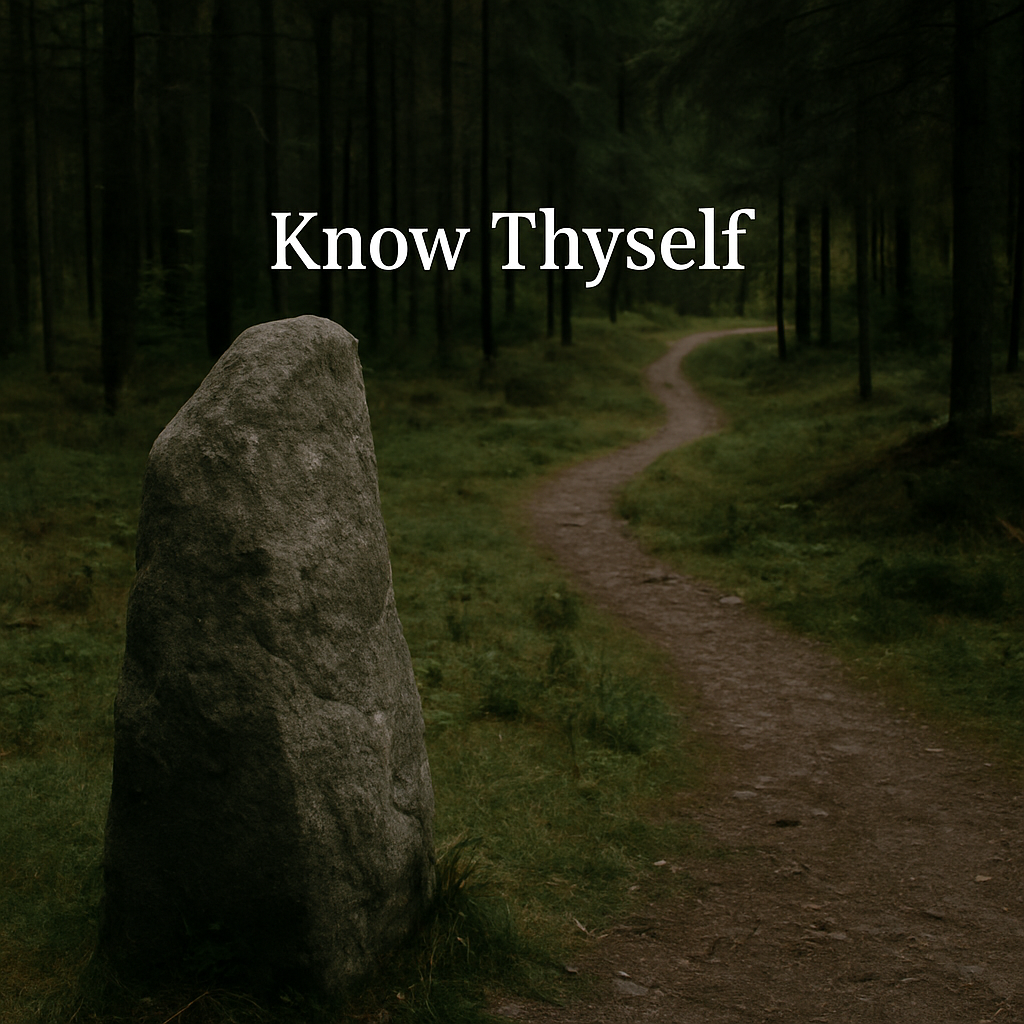It didn’t come as a philosophical musing, a slow burn of reflection, or a flash of inspiration. It came as a moment of crisis and suffering, as these things often do.
For all my will, all my restraint, I couldn’t control it. It broke me.
Something deeper in me pushed back. Hard. My rational mind tried to steer, to reason, to override and it failed. I realised then that what I was feeling, what I was facing, was stronger than any of my logic or reason. It lived somewhere deeper.
And I knew something was wrong.
I had been on the path of growth for years. I’d read philosophy. I’d practised self-discipline. I’d absorbed the lessons of moral frameworks, religious traditions, psychology, even modern self-help. I had built a code for myself of quiet strength, clear thinking, emotional restraint, integrity.
But now, this all felt thin. Not false, but incomplete.
So I began to map the inner world again differently this time. Less as a hierarchy, and more as a layered conversation. And this is what I saw:
The Five Functions of the Self
- The Id (your animal drive)
The primal engine — urges, appetites, emotions. Raw and pre-verbal. The part of you that wants and reacts before thought. - The Ego (your internal identity)
The internal “I” — your identity, self-image, and the interface with the world. But it is not purely rational; it’s shaped by environment, childhood, culture. It’s functional, but fragile. - The Superego (your inner critic or rulebook)
The judge. Inherited ideals and expectations — what you “should” be. Also socially constructed, often harsh, and frequently in conflict with the Id. It tries to protect you but often leaves you astray.- The superego is not rational — it’s absorbed, not examined.
- It can be outdated, rigid, or rooted in childhood dynamics that no longer serve you.
- A man can be 35 (me) and still driven by a superego that says, “Don’t cry, don’t need anyone, don’t be weak
- The Rational Mind (Stoic reason)
The capacity to step back, think clearly, and live in accordance with nature and virtue. It is, unlike the ego or superego, not socially constructed it is a universal function. The pilot, not the program. - The Soul (your higher reasoning or inner compass)
Not the ego, not the mind — the quiet observer. The one who watches. The one who aches for meaning. It has no drive, but it knows when something is true. (We till return to this in a further writing)
For a long time, I’d assumed my rational mind was in command. But I came to see that my ego was still running the show — only dressed in philosophical robes. The "ego problem" isn't just arrogance. It's misalignment — the ego not mediating truthfully between your inner life and the outer world.
And because the ego is shaped by fear, culture, shame, and survival, it often can't hear reason until it is healed.
So I stopped trying to dominate myself.
Instead, I started trying to integrate.
Not crush the ego, but merge it with the rational mind. Let them sit together. Let the ego soften. Let it learn to trust the part of me that doesn’t panic or perform.
The goal shifted.
Not control — coherence.
To “know thyself” isn’t to uncover one hidden truth.
It’s to recognise that you are many things at once — some wise, some wounded — and learn how to relate to each part with honesty and strength.
And here’s the quiet truth that followed me home:
Often, we know exactly what we want to do.
We know how we should respond. What would be right. What would be strong. But we don’t.
We freeze. We lash out. We retreat. We avoid.
That gap between what we know and what we do isn’t proof that you’re weak. It’s proof that your ego is louder than your reason.
And that’s not a flaw. That’s the signal.
That strain you feel that pressure, that inner argument is sacred. It shows you where the work is.
It tells you where healing must happen. Where your ego still mistrusts your higher self.
It doesn't mean you’ve failed.
It means you’ve found a fault line.
Through this crisis, I’ve come to understand something profound:
Every time I feel that familiar surge the tightness, the resistance, the fear, the anger, I know it’s my superego flaring up. The inherited voice. The anxious protector. The inner child still trying to keep me safe the only way it knows how.
And now, when that voice rises, I respond differently.
I speak to myself like a father to a child:
“Let go. You can let go now — I’ve got us.
You don’t need to fight anymore.
I am strong enough, wise enough, to lead us.
If you keep holding on like this, it will only hurt us.
But I’m here. I will protect us. I love you. You can rest.”
This, too, is knowing yourself.
Not just observing the ego but parenting it.
Not suppressing the fear but meeting it with strength and love.
So start there. Not with willpower. With curiosity.
The place that resists your growth is the very place that needs your attention.
And the part of you that flinches might just be trying to protect a younger part that doesn’t know it’s safe yet.
Listen. Learn. Integrate.
That is the beginning of wisdom.

